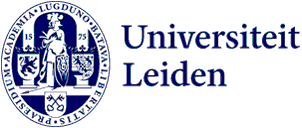Introducing: Mirjam Twigt
Mirjam Twigt recently joined the Institute for History as a Research Officer / Postdoctoral Researcher for the Leiden-Delft-Erasmus Centre for Governance of Migration and Diversity (LDE GMD). Below she introduces herself.
Hello everyone! Thank you for this opportunity to talk about my work and myself. I am based at the Institute for History. My position as Research Officer / Postdoctoral Researcher for the LDE GMD however means that my work involves eight different faculties and is spread out over 4 different locations. My work is geared to support intra-disciplinary research across three universities on migration AND diversity and the politics and power relations involved.
What is helpful for this position, is that I am an (sometimes somewhat confused) interdisciplinary migration researcher: I have a background in Medical Anthropology and International Development Studies and pursued a PhD in Media, Communication and Sociology, at the University of Leicester in the UK. I then lived in Jordan for a position at the Council for British Research in the Levant (CBRL) and subsequently moved to Norway, for a postdoctoral at the University of Oslo. I was based at the Faculty of Law as I was studying the provision of refugee legal aid in Iraqi Kurdistan. And now I am at the Institute for History! One of the challenges with interdisciplinary research is that you do not have one place you necessarily belong. This is a somewhat ironic parallel to the migration journeys I am researching.

My research focuses on the interactions between digital developments and people’s experiences of forced migration and unequal mobility. My approach is ethnographic as I am interested in everyday practices and social relations. These are of course always situated in historical contexts. For instance, my book ‘Mediated Lives. Waiting and Hope Among Iraqi Refugees’ shows how experiences of a dictatorial regime, foreign occupation and governmental collapse continue to play out in present lives of urban refugees. My most recent publication considers how the increased deployment of automation and AI for refugee governance purposes in different Middle Eastern countries resemble the violence of past colonial histories and interact with its ruins.
A core question throughout my work is how to ethically engage with the precarious experiences of others elsewhere and/or elsewhen. This immediately begs the following question which is if knowledge production and dissemination can serve to foster transnational solidarity and to challenge structural, and often naturalized, inequalities and borders. The latter allows that different migrants are treated differently and that the rights of many are violated. Previously, I have worked together with different NGOs and civil society organizations, working with people from Palestine, Syria, Sudan, etc. to establish greater rights-recognition for people seeking refuge.
My position as Research Officer / Postdoctoral researcher LDE GMD allows me to gain greater understanding into the Dutch academic environment and its different funding structures. It allows me to learn about who does what regarding migration research in The Netherlands and to build up connections, needed to establish strong research proposals. The second part of my role involves developing my own research agenda. I have big ideas of what I would like to explore, for instance regarding how the roles that different UN bodies play regarding migration governance have developed over time. I hope this to be a process of co-creation with you and other academic colleagues, civil society and people who are experts because of their personal migratory experiences.
I look much forward to learning from your studies and experiences with archival and oral historical research!
